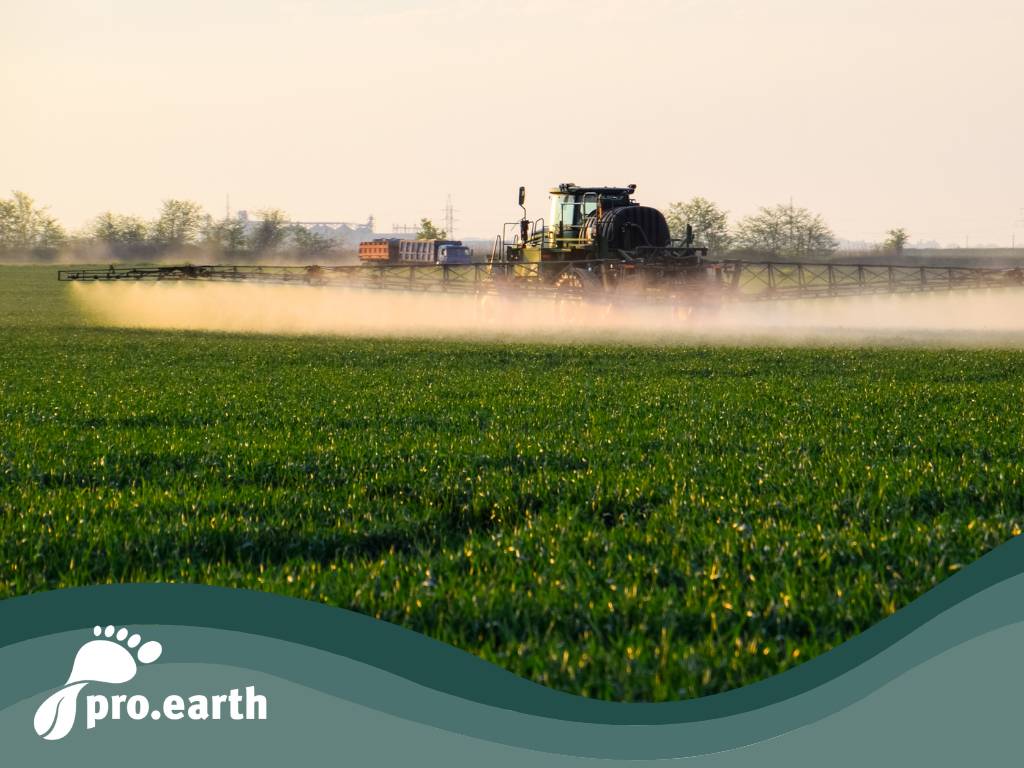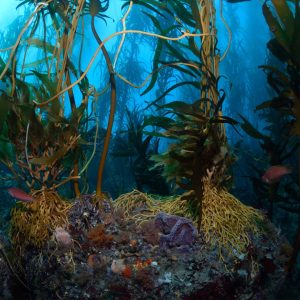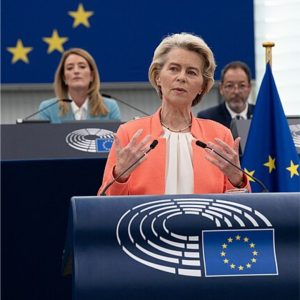It remains exciting: will glyphosate approval be extended?

The EU-wide approval for glyphosate expires on December 15, 2023. Yesterday, the member states should have decided in the Standing Committee on Plants, Animals, Food and Feed (SCOPAFF) on the continued authorization of glyphosate - also known as "Roundup" - for the next ten years. However, there was no qualified majority - this consists of 55% of member states representing 65% of EU citizens.
As the committee did not find a majority, there will be an appeal in the coming weeks. The Commission can submit a new proposal in the meantime. If no decision is taken by then, the Commission could extend the authorization on a transitional basis, as it did in 2022. Based on a parliamentary decision in 2017, Austria, represented by the Agency for Food Safety (Ages) on behalf of the Ministry of Agriculture, voted against an extension of glyphosate use.
"It is a vote of no confidence in the EU approval authorities EFSA and ECHA that the Member States have not approved the authorization of glyphosate today," says Helmut Burtscher-Schaden, biochemist at GLOBAL 2000. "Unfortunately, the mistrust is justified. The authorities have given glyphosate a carte blanche, although independent studies - and in some cases also the manufacturers' studies - clearly show that glyphosate does not meet the legal requirements for approval. In addition, the applicants are suspected of having withheld unfavorable studies and data."
What is glyphosate?
According to Wikipedia, it is the main component of some broad-spectrum herbicides and was launched on the market in the late 1970s by Monsanto under the name "Roundup". Today, glyphosate products are sold by around 40 manufacturers and it is the most widely used pesticide in the world.
Glyphosate kills all plants treated with it, except genetically modified crops that have been immunized against the herbicide.
In 2015, the International Agency for Research on Cancer (IARC) of the World Health Organization (WHO) classified it as "probably carcinogenic", which once again fueled the public debate on the topic. The European Chemicals Agency (ECHA), on the other hand, classified glyphosate as safe - an assessment that was followed this year by the European Food Safety Authority (EFSA). "The fact that the WHO expert panel came to different conclusions based on the same studies (...) puts the European risk assessment for pesticides in a dubious light," said Burtscher.
Where is glyphosate used?
This herbicide is used in agriculture, fruit growing and viticulture, in private households, parks and railroad tracks. Many Austrian municipalities have committed to doing without glyphosate. Since 2021, there has also been a partial ban on glyphosate throughout Austria for sensitive areas such as children's playgrounds, parks, hospitals and private gardens, and it may no longer be sold in DIY stores. Herbicides have been banned for private individuals since 2021.
According to Global 2000, around 826,000 tons of glyphosate were sold worldwide in 2014, 90 percent of which went to agriculture.
Risks for people and the environment
Opinions differ widely on the possible risks, as the assessments of the EU and WHO also show. Global 2000, for example, writes that glyphosate has the same lethal effect on bacteria as on non-GM plants and cites research by the University of Natural Resources and Life Sciences in Vienna on damage to the reproduction of earthworms. Global amphibian mortality is also linked to glyphosate.
So far, glyphosate has been detected in food, for example by the consumer magazine ÖKOTEST, which found residues in lentils, children's cookies, chocolate muesli, flour and bread. It has even been detected in organically grown foods such as tea, cereals and pulses and in beer, wine and grape juice.
Researchers at Duke University (North Carolina) have now carried out extensive investigations into mysterious chronic kidney diseases among farmers in tropical regions and were able to prove their negative effects on humans even years after the use of Roundup.
If all undesirable, non-GM plants die, many wild arable plants will disappear and with them the food source for many insects and other animals.
Furthermore, according to BUND, it pollutes groundwater, lakes and rivers, as well as soil and air.
Conference on the topic
On October 25, the international scientific conference Environment, Work and Health in the 21st Century in Bologna, new research findings from the multi-institutional Global Glyphosate Study will be presented. The data presented there come from the most comprehensive independent toxicological study ever conducted on glyphosate and glyphosate-containing herbicides.
Our pro.earth. Conclusion: From the point of view of some, it is certainly practical to have a product that kills everything undesirable - for example on railroad tracks. But considering the wide-ranging and in part not yet well researched effects of this, one can only be in favor of an immediate stop to this herbicide. We should start working WITH nature - especially in agriculture - and not against it. Then we would no longer need any poisons, which then migrate into our bodies and the global ecosystem in various ways and harm us.






